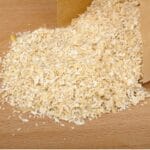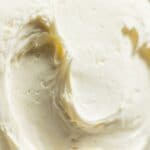Quick summary: Yes, almond butter can go bad, and spoilage will accelerate after opening the jar.
Almond butter is a delicious and nutritious spread with which you can start the day. To some extent, nutritionists will agree that it is slightly healthier than peanut butter due to the higher presence of vitamins and minerals. However, both pastes are very high in calories, and hardly anyone will recommend daily consumption in larger quantities.
In addition, this calorie bomb can be attractive for a few days, but then you will probably take a break by choosing different types of breakfast. Therefore, almond butter is often left in the refrigerator and forgotten. How long can it last, and can it spoil? We provide all the answers below.
How Long Does Almond Butter Last?
Almond butter is one of those foods for which you cannot precisely predict durability. Yes, it will spoil or become rancid over time. But when exactly that moment will occur depends largely on external influences or the circumstances in which it is stored. However, you can rely on some time frames.
Unopened almond butter
As long as the almond butter is unopened, it is protected from the air and thus less prone to rancidity. You can be guided by the principle that the product will be good for at least three to four months after the expiration date written on the package. Possibly even months longer if the product was kept in a cooler place or refrigerator.
Opened almond butter
After opening, exposure to air begins to accelerate spoilage. However, it does not happen quickly. You can count on almond butter to be good for three to four months after opening if you keep it at room temperature or at least six to seven months in the refrigerator.
Homemade almond butter
Almond butter you make at home has not been pasteurized and does not contain preservatives. Therefore, be sure to store it in the refrigerator at all times and use it within two weeks.
Can Almond Butter Go Bad?
Like any other butter and fat, the almond spread will become rancid over time. There is no exception. This is the most common type of spoilage, but other scenarios are certainly possible. Here’s what you need to pay attention to.
Sign 1: Smell is off
The easiest way to recognize a rancid product is by its smell. A slightly chemical fragrance is an obvious sign that rancidity has occurred. But a foul odor will signify deterioration regardless of the type of spoilage. If you feel there is no longer a sweet, tempting aroma, throw the product away.
Sign 2: Mold
Mold is possible on almond butter, especially if the product has been kept at room temperature. If you notice mold spores or dark spots on the product, you should immediately throw everything in the trash.
Sign 3: Taste is funky
If everything looks fine on the outside, but the taste is different from what you are used to, it is possible that the early stages of spoilage have occurred and have not fully developed. Regardless, it’s still a surefire guideline that you should throw away the product rather than consume it. Besides, what good is almond butter whose taste you don’t enjoy?
Which is the Best Way to Store Almond Butter?
How you store your almond butter will significantly affect its shelf life and quality. Therefore, it is not out of place to check a couple of guidelines to see if you are doing them correctly.
Tip 1: Protect from heat
Heat is the great enemy of all types of butter. Apart from improving the constant separation of the oil so you will have to stir the product often to get a fine paste, the heat will also allow the bacteria to grow faster. Therefore, avoid keeping almond butter warm both before and after opening. It does not necessarily have to be a refrigerator (except for homemade butter), but a more comfortable temperature in the pantry will certainly be desirable.
Tip 2: Close well before storing
Be sure to seal the jar tightly before storing the almond butter. The inflow of air does not favor its durability, and besides, the lid will prevent other impurities from coming into contact with the almond paste.
Tip 3: Refrigerate for longer keeping
As we wrote, it is not necessary to keep it in the refrigerator, especially not before opening the jar, but if you want to maximize the shelf life of almond butter, we advise you to find some space in the fridge. Regardless of whether it is opened or not, the colder temperature in the fridge will significantly extend the shelf life and preserve the quality.
FAQs
Signs of spoilage can be a bad smell, especially if the product is rancid. Then the mold you can see on the surface or in the form of dark spots in the almond paste. And ultimately, a bad taste that will tell you that something is wrong.
If stored in good condition, almond butter will almost certainly last longer than the recommended shelf life. If the jar is unopened, you can count on three to six months of extended shelf life, depending on where you stored it.
If the almond butter is spoiled, it can definitely cause health problems and food poisoning. Therefore, if you are not sure whether the product is correct, rather do not risk it and throw it away.
Almond butter is an extremely tasty and nutritious spread. However, for many, it is a matter of desire. You often enjoy consuming it for several days in a row and then want to take a break for a few weeks or months.
Therefore, it is always better to keep it in the refrigerator to maximize its durability. If you notice any signs of spoilage, such as a foul smell and taste or dark spots that may appear, be sure to throw the product in the trash because there is no way to save it.
This might also interest you:
*image by wirestock_creators/depositphotos









